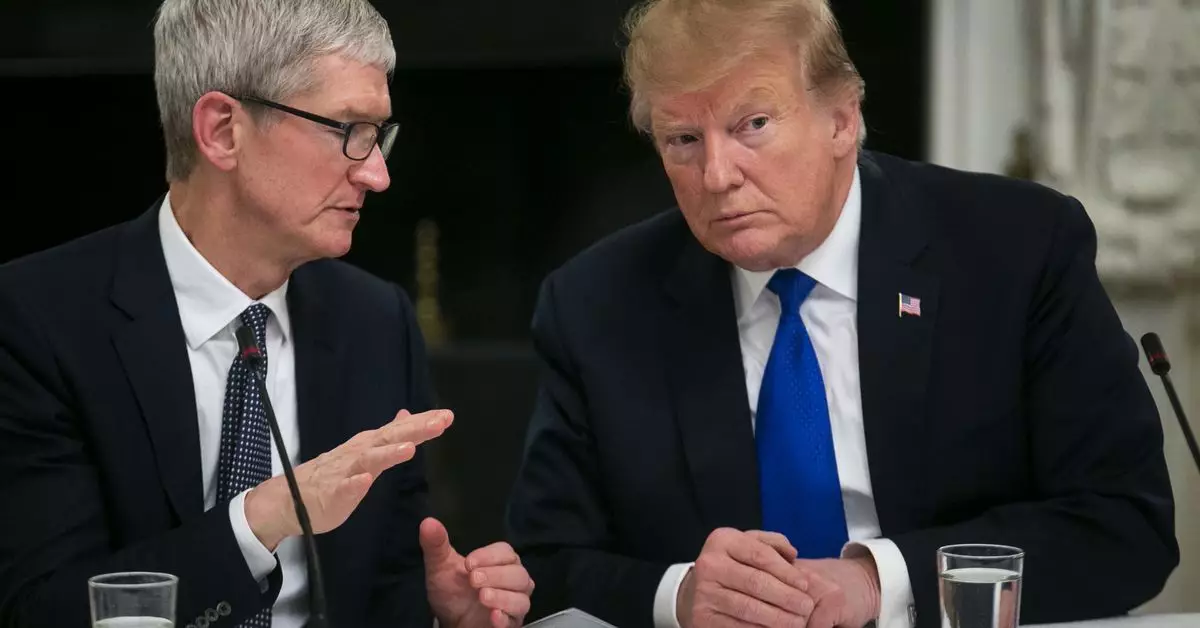In an era where technology and politics are increasingly intertwined, the meeting between Apple CEO Tim Cook and President-elect Donald Trump at Mar-a-Lago symbolizes the significant intersection of these realms. As technological innovations catalyze economic growth and societal change, leaders in the tech industry frequently find themselves navigating complex political landscapes. Cook’s dinner with Trump represents not merely a social gathering but a calculated move to establish dialogue on crucial issues impacting the industry.
Cook’s history with Trump stretches back to the former president’s first term. Their direct relationship, which other tech leaders have sought to emulate, was cultivated through numerous discussions on pressing industry concerns such as tariffs and regulatory policies. As Trump prepares to assume office again, it is likely that Cook aims to leverage this connection to address potential tariffs that could have far-reaching consequences for Apple. Given the global nature of Apple’s supply chain, any modification in trade policy could notably impact the company’s operations, profit margins, and consumer pricing.
Moreover, it becomes vital to consider the backdrop of the European Union’s legal actions against Apple. Accusations of anticompetitive behavior—particularly concerning App Store regulations and platform management—have garnered attention. During his campaign, Trump suggested that Cook had reached out to express concerns about the significant fines and regulatory pressures Apple’s European operations face. This presents another pivotal topic for discussion at their upcoming dinner.
Cook’s meeting is set against a backdrop of other significant interactions between Trump and prominent figures in the tech world. Just prior to Cook’s dinner, discussions between Trump and Sundar Pichai, CEO of Google, and future plans to meet with Jeff Bezos unveil the continued effort from tech leaders to cultivate favorable conditions in the political arena. It underscores the growing recognition among tech giants that they must engage with legislative frameworks that affect their business operations.
Furthermore, it is noteworthy that companies like Meta, Amazon, and OpenAI, through their leadership and financial contributions, are making concerted efforts to forge relationships with the new administration. The recent $1 million donations to Trump’s inauguration fund reflect a strategic approach to ensuring their interests are represented as new policies are formulated.
As Cook, Trump, and other tech executives navigate this intricate web of influence, the importance of strategic networking within the political sphere cannot be understated. Cultivating these relationships may provide essential insights and advantageous positions in anticipation of regulatory changes. The ongoing dialogue between technology and governance emphasizes the need for open lines of communication to address comprehensive issues, from market competition to consumer protections.
Tim Cook’s dinner with Donald Trump is poised to be more than a mere social occasion; it is a chance to discuss significant challenges that Apple and, by extension, the technology industry as a whole are facing. This interaction potentially sets the stage for a collaborative approach to navigating regulatory landscapes, ensuring both technological advancement and corporate sustainability in an ever-evolving political environment.

